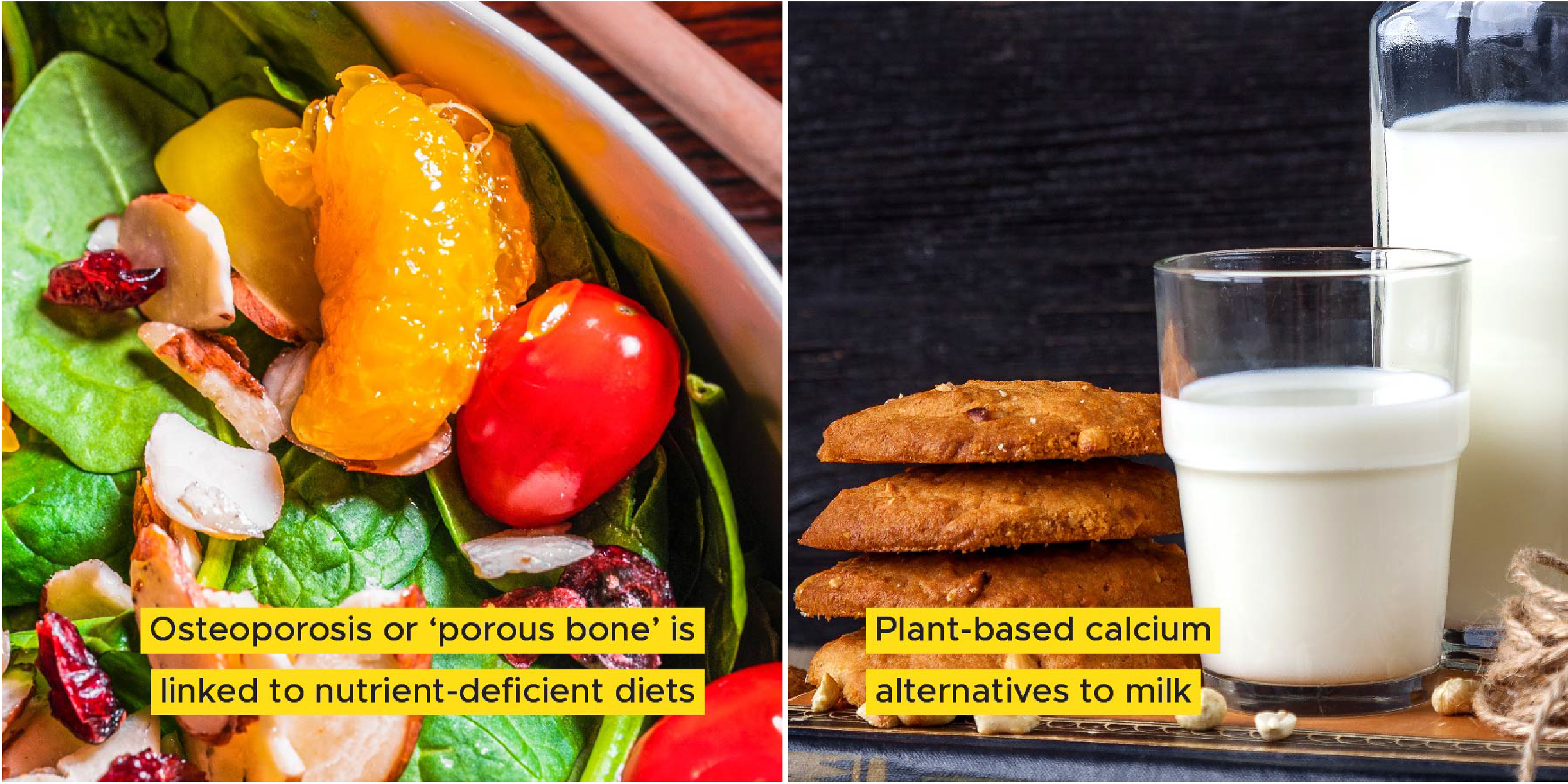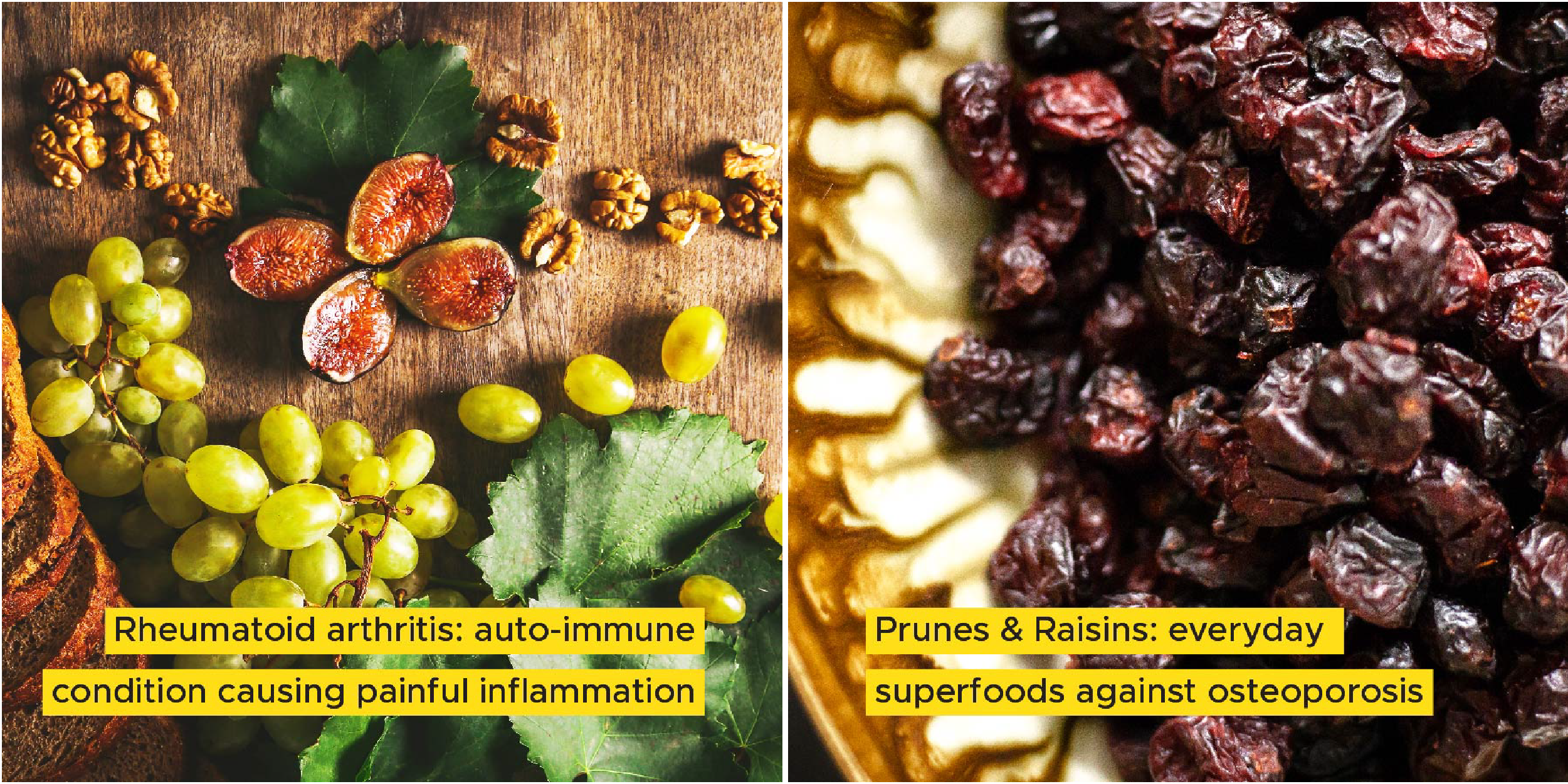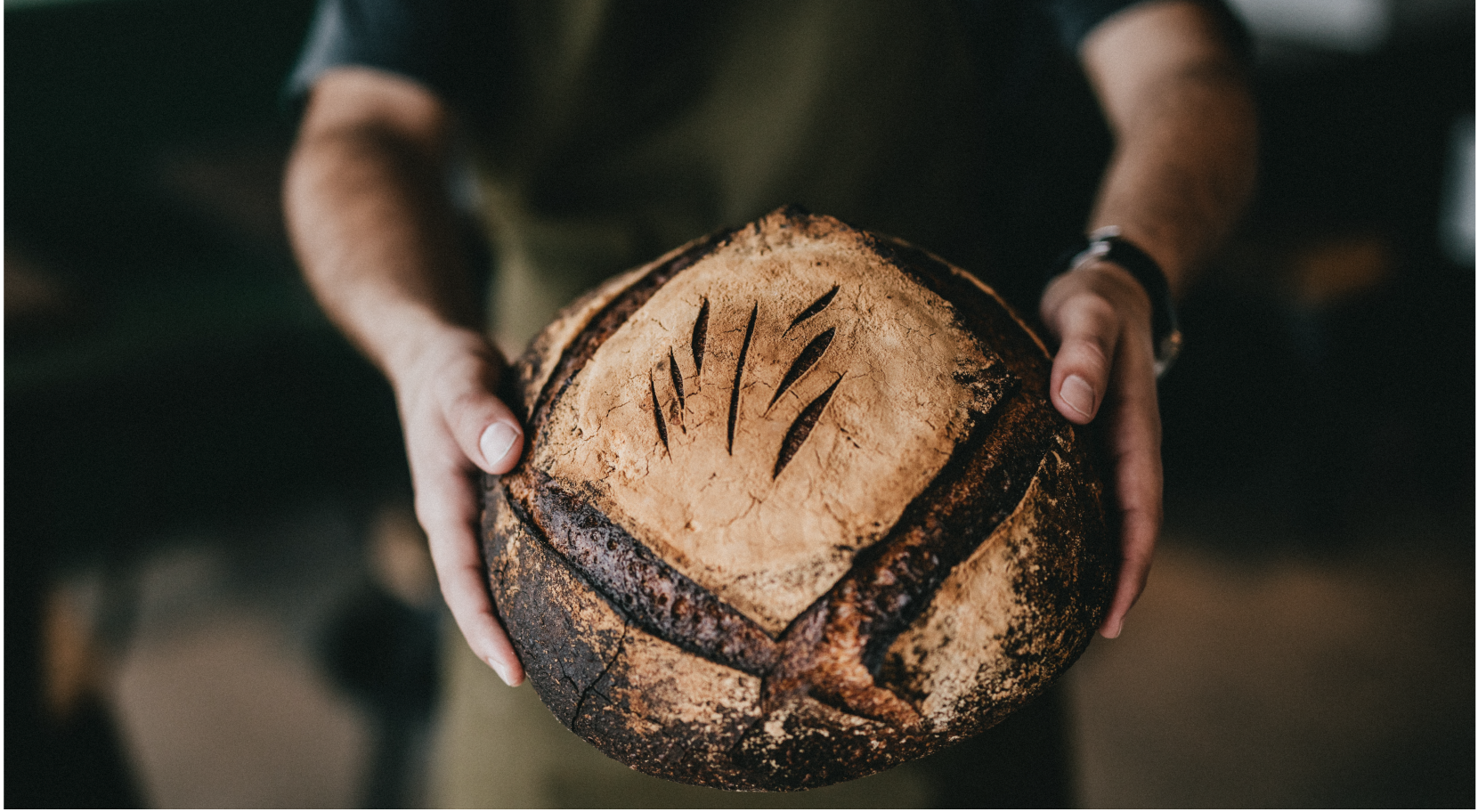Bone Health & Nutrition
Published: 21-Jul-2020 Category: Food Bulletin Newsletter

By Ashok Vasudevan
Bone Health & Nutrition
Collagen, Calcium, Phosphorus, and Vitamin D are each crucial for bone health as we age. Collagen is the most abundant protein in our body that forms the scaffolding that gives our body its structure and strength. Calcium homeostasis is an even distribution of Calcium in the bones and is crucial for skeletal health. This process is aided by Phosphorus and Vitamin D that ensures the absorption of Calcium in our body.
Vitamin C, amino acids, zinc and Copper are required for pro-collagen, the precursor to the protein collagen. So, here is a bone friendly menu instead of mere supplements.
Grains: Whole grains & pseudo grains, millets. They are mineral rich and have some important amino acids that aid collagen production.
Beans are rich in amino acids and copper. Pick the bean of your choice (kidney beans, navy beans, black beans, etc.). So now you have your rice & Beans!
Vegetables: Pick chlorophyll rich green leafies like spinach, kale and salad greens.
Fruits: Tomatoes, berries, guavas, citrus (like grapefruit)
Nuts: Cashews. They are zinc and copper rich
A word of caution: Excess Vitamin A is not necessarily a friend and has been known to make bones fragile. So avoid excess orange and yellow vegetables

Osteoporosis or ‘porous bone’ is linked to nutrient-deficient diets
Osteoporosis is degenerative, reducing bone density, mass and strength as we age. It need not be so. Diets rich in calcium & Vit D strengthen bones, as do magnesium, Vit K, Zinc, potassium, Vit C. These nutrients are found in fresh green vegetables, spinach, soya, dairy, bananas, broccoli, berries, citrus fruits. We need to start eating these from childhood to stave off osteoporosis in later years.
Plant-based alternatives of calcium for bone health
While we often associate calcium with milk and milk products, it’s worth getting familiar with non-dairy sources of calcium seeing that up to two-thirds of the world are lactose intolerant. 1 cup of dairy milk provides 300mg of calcium (30% D.V.). Here are some alternatives to get the same amount of calcium; 3 tablespoons of sesame seeds, 1 cup of white beans, 1 ½ cups cooked collard greens, 1 cup amaranth leaves, ? cup cooked tofu. On top of that, these plant-based options are full of other minerals and vitamins for overall wellness!

Rheumatoid arthritis: auto-immune condition causing painful inflammation
This disorder begins with painfully swollen joints and leads to inflammation in other organs. We can, however, adopt the right diet to combat this systemic inflammation. Omega3-rich foods like walnuts or flaxseed convert to resolvin, a compound that puts the brakes on inflammation. Whole grains, fiber-rich veggies keep the gut healthy and reduce inflammation, as do anti-oxidants like Vit A, C & E found in fruits & vegetables.
Prunes & Raisins: everyday superfoods against osteoporosis
Green leafy veggies & fruits are good for bone health, but let’s also consider the humble prune and raisin. Several studies reveal that the high levels of special phenolic compounds like IGF-1 in these two dried fruits actively fight bone degeneration. Prunes & raisins are also high in antioxidants, calcium, boron & potassium, which are defenders of your bones. They make good snacks too, so include them in your daily diet.
Vitamin C, amino acids, zinc and Copper are required for pro-collagen, the precursor to the protein collagen. So, here is a bone friendly menu instead of mere supplements.
Grains: Whole grains & pseudo grains, millets. They are mineral rich and have some important amino acids that aid collagen production.
Beans are rich in amino acids and copper. Pick the bean of your choice (kidney beans, navy beans, black beans, etc.). So now you have your rice & Beans!
Vegetables: Pick chlorophyll rich green leafies like spinach, kale and salad greens.
Fruits: Tomatoes, berries, guavas, citrus (like grapefruit)
Nuts: Cashews. They are zinc and copper rich
A word of caution: Excess Vitamin A is not necessarily a friend and has been known to make bones fragile. So avoid excess orange and yellow vegetables

Osteoporosis or ‘porous bone’ is linked to nutrient-deficient diets
Osteoporosis is degenerative, reducing bone density, mass and strength as we age. It need not be so. Diets rich in calcium & Vit D strengthen bones, as do magnesium, Vit K, Zinc, potassium, Vit C. These nutrients are found in fresh green vegetables, spinach, soya, dairy, bananas, broccoli, berries, citrus fruits. We need to start eating these from childhood to stave off osteoporosis in later years.
Plant-based alternatives of calcium for bone health
While we often associate calcium with milk and milk products, it’s worth getting familiar with non-dairy sources of calcium seeing that up to two-thirds of the world are lactose intolerant. 1 cup of dairy milk provides 300mg of calcium (30% D.V.). Here are some alternatives to get the same amount of calcium; 3 tablespoons of sesame seeds, 1 cup of white beans, 1 ½ cups cooked collard greens, 1 cup amaranth leaves, ? cup cooked tofu. On top of that, these plant-based options are full of other minerals and vitamins for overall wellness!

Rheumatoid arthritis: auto-immune condition causing painful inflammation
This disorder begins with painfully swollen joints and leads to inflammation in other organs. We can, however, adopt the right diet to combat this systemic inflammation. Omega3-rich foods like walnuts or flaxseed convert to resolvin, a compound that puts the brakes on inflammation. Whole grains, fiber-rich veggies keep the gut healthy and reduce inflammation, as do anti-oxidants like Vit A, C & E found in fruits & vegetables.
Prunes & Raisins: everyday superfoods against osteoporosis
Green leafy veggies & fruits are good for bone health, but let’s also consider the humble prune and raisin. Several studies reveal that the high levels of special phenolic compounds like IGF-1 in these two dried fruits actively fight bone degeneration. Prunes & raisins are also high in antioxidants, calcium, boron & potassium, which are defenders of your bones. They make good snacks too, so include them in your daily diet.

